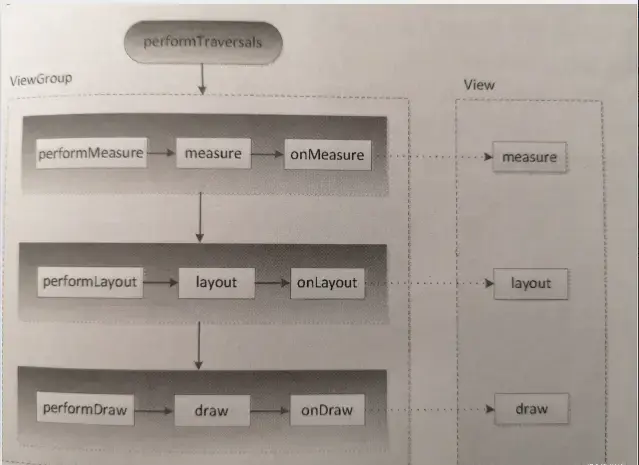00-面试查漏补缺
View绘制流程图

起点:ViewRootImpl
在ViewRootImpl中有一个巨长的方法performTraversals,其中会依次调用三个函数
- performMeasure
- performLayout
- performDraw
通过ViewRootImpl的setView方法,ViewRootImpl对象会拥有一个mView对象

在ViewRootImpl中有一个巨长的方法performTraversals,其中会依次调用三个函数
通过ViewRootImpl的setView方法,ViewRootImpl对象会拥有一个mView对象
1 | public final class Message implements Parcelable { |